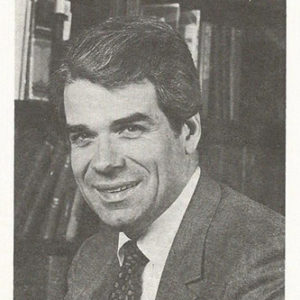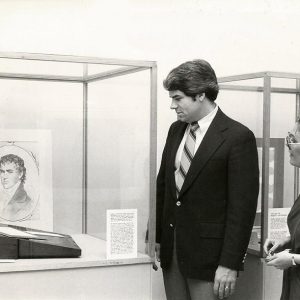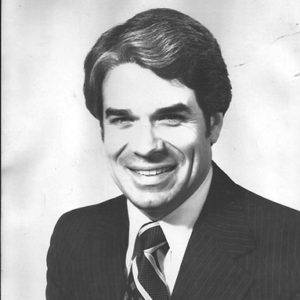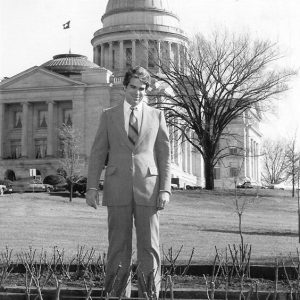calsfoundation@cals.org
Paul Riviere (1947–)
Paul Riviere served as Arkansas Secretary of State from 1979 until 1985 and was a candidate for Arkansas’s Second Congressional District seat in the U.S. House of Representatives in 1984. Unsuccessful in that bid, he moved to Brentwood, Tennessee, in 1986, where he established himself as a respected and successful real estate professional in the central Tennessee area.
Paul Riviere was born on July 17, 1947, in Monticello (Drew County) to Frank Riviere and Maybell Barnett Riviere. Raised in Monticello, he developed an interest in politics while campaigning with his father, who sought the position of Drew County tax assessor. While a student at Monticello High School, Riviere was elected student body president and selected to be a delegate to the American Legion’s Arkansas Boys State. Elected Boys State governor, he made his first visit to the Arkansas State Capitol, where he was introduced to Governor Orval Faubus. Upon hearing Riviere’s name, the governor exclaimed, “That name is worth 40,000 votes in any statewide race!”
Following his graduation from high school in 1965, Riviere enrolled at Arkansas Agricultural and Mechanical College (which became the University of Arkansas at Monticello in 1971), where he initially pursued a forestry degree but changed his major to business administration, which he thought would be a better background from which to pursue a law degree. While in college, Riviere worked for a time in the Washington DC office of U.S. senator John L. McClellan and took classes at George Washington University.
After graduating from college in 1971, Riviere attended law school in Little Rock (Pulaski County) at what later became the University of Arkansas at Little Rock William H. Bowen School of Law, while also working in state government. It was during this time that he met and married Carolyn Moore, a nursing professional and instructor. They had two daughters.
Finishing law school in 1975, Riviere was unsuccessful in his bar examination attempts. He was soon recruited to return to state government when Secretary of State Winston Bryant offered him a position. In 1978, Bryant decided to run for Congress instead of seeking reelection, and Riviere became the first candidate to announce his candidacy for secretary of state. The race became a four-way Democratic primary that included well-known Pulaski County circuit clerk Julia Hughes Jones. While Jones led the ticket, fewer than 4,000 votes separated Jones and Riviere, forcing a runoff election. The runoff campaign centered on the perennial issues of the office: election duties, technology, parking, and maintenance and upkeep of the Arkansas State Capitol and grounds. Riviere defeated Jones 52–48 percent. He was unopposed in the general election.
With two-year terms in effect at the time, Riviere took office January 1979 and announced for reelection in October 1979. In his announcement, he cited a reduction in the number of employees while maintaining services, improved voter and election services, and beautification projects for the capitol and grounds. Known for his congenial manner and efficient administration of the office, he was unopposed for reelection in 1980 and 1982.
Riviere received some criticism for using a computerized statistical method by which a sample of signatures on a ballot initiative petition was used to determine sufficiency for placement on the 1980 ballot. However, while he was confident in the new method, he determined that the doubts raised by critics merited returning to the method of manually verifying each signature.
Occasionally, Riviere clashed with the Arkansas General Assembly. In 1982, he requested a legal opinion as to whether a clause requiring interim committee review and advice on expenditures of enacted appropriations violated the separation of powers required by the state constitution. The attorney general opined that post-appropriation committee process approval did indeed violate the constitution. The Arkansas Legislative Council responded by renaming the Advice and Approval Committee, requesting an audit of certain expenditures in Riviere’s office, and threatening to move the care and maintenance of capitol and grounds to a state agency. He also clashed with the legislature over the state-owned Capitol Hill Building (the former Rackensack Hotel), which, at one point, Riviere had hoped to have demolished.
By April 1983, Riviere was openly hinting at the possibility of seeking the Democratic nomination for the U.S. House of Representatives seat in the Second Congressional District and, in July of that year, filed documents with the Federal Election Commission declaring his candidacy in the 1984 election. The open seat, being vacated by incumbent Republican Ed Bethune, created considerable interest and prompted a spirited five-way Democratic primary contest. The primary campaign highlighted taxation, the line-item veto, healthcare, and court-ordered school desegregation as substantive issues but came to be dominated by the outsized personality of Pulaski County sheriff Tommy Robinson. Robinson won a plurality in the primary and was forced into a runoff election with Riviere. While Riviere carried Pulaski County, he was unable to overcome strong Robinson support in the surrounding counties.
Riviere took the defeat with characteristic optimism, stating, “I don’t mean it superficially, but you can find blessings in adversity.” Leaving office in January 1985, he worked for a commercial real estate firm in Little Rock until a friend from college offered him an opportunity in Tennessee. In 1986, Riviere moved with his wife to central Tennessee, where he continued his career in real estate.
For additional information:
Smith, Doug. “Unopposed Incumbent Paul Riviere Has Found His Niche.” Arkansas Gazette, June 20, 1982, pp. 1B, 6B.
Stover, Bob. “State History Buff Trying to Defy Past with Campaign for Congress.” Arkansas Gazette, May 14, 1984, p. 5A.
“Riviere Plans to Leave State for New Job.” Arkansas Gazette, July 8, 1986, p. 2B.
Wes Goodner
Little Rock, Arkansas
 Divergent Prosperity and the Arc of Reform, 1968–2022
Divergent Prosperity and the Arc of Reform, 1968–2022 Politics and Government
Politics and Government Riviere Campaign Flyer
Riviere Campaign Flyer  Paul Riviere, 1979
Paul Riviere, 1979  Paul Riviere
Paul Riviere  Paul Riviere, 1980
Paul Riviere, 1980 




Comments
No comments on this entry yet.